Books for young people to encourage mental wellbeing in troubled times
Published on: 6 Rhagfyr 2019 Author: Lucy Christopher
Author Lucy Christopher talks us through the children's books that shine a spotlight on mental wellbeing and empathy: topics we need as the world (and the news) gets ever-more complicated.
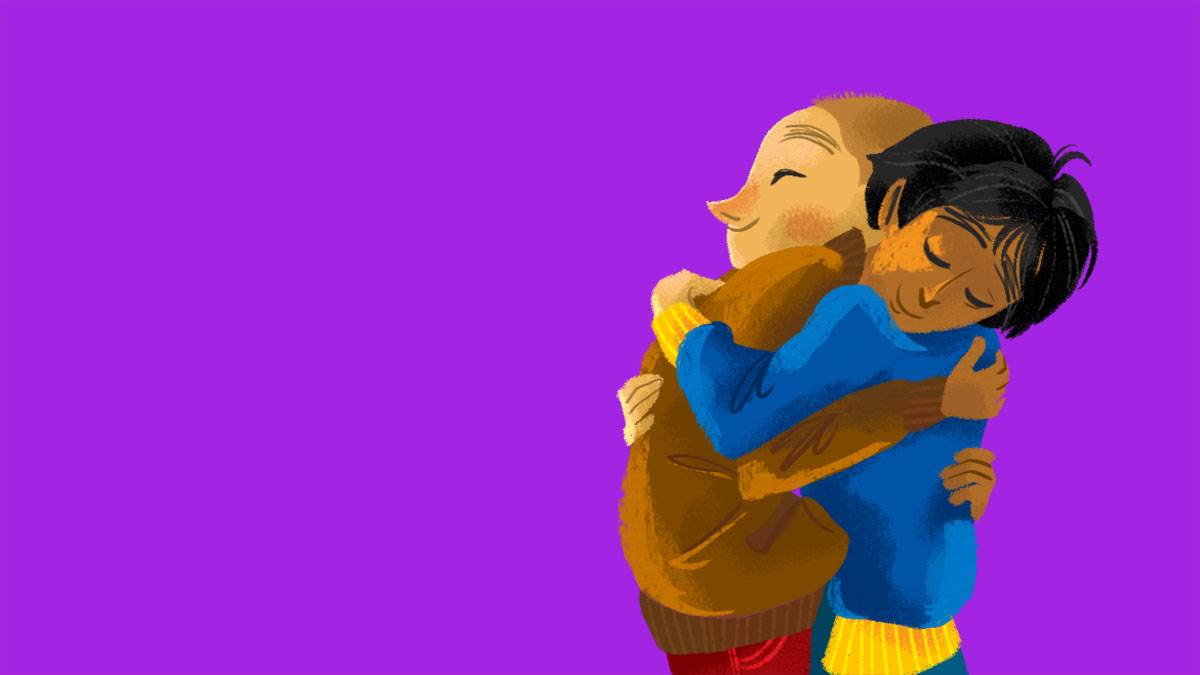 Illustration by Erika Meza
Illustration by Erika Meza
I’ve spent many of the past weeks anxious and confused, glued to the television, interspersing my viewing of the Extinction Rebellion protests with the ongoing Brexit and General Election news.
But it’s not just us adults who are stressed and confused right now. Earlier this year, The Guardian reported that the mental health of schoolchildren was at 'crisis point' (Weale, 2019), and the BBC reported 'a near 50 per cent increase in referrals to child health services' (Thomas, Titheradge, 2019).
It’s clear that being glued to the TV is not the answer to the confusing times we live in – for us adults or our children.
But what is the answer?
Train our brains for empathy
A growing body of worldwide research suggests regular reading builds better mental wellbeing (see National Literary Trust’s fascinating 2018 report), and that reading fiction can actually increase our brain’s capacity for empathy. According to EmpathyLab, 98 per cent of us can train our brains to become more empathetic through reading.
And why is this a good thing?
Being empathetic – practising tolerance, kindness, and understanding of others – has a basic positive impact on mental health. Secondly, and quite simply, empathy enables us to live in another’s shoes. It helps us to imagine what life is like for someone who is not us. Studies have shown that when you get lost in a book, your brain actually puts you into the story. When the character makes decisions, you – the reader – start to understand why.
Imagine how much smoother Parliament might be if more empathy was employed? Or if the journalists writing about Extinction Rebellion had stopped to read a novel from the point of view of an anxious teenage protester? By sharing books with our children, we are enabling better mental wellbeing (for both you and your child!), providing a conduit for discussions about mental health and other delicate topics. We are building mental capacity for empathy.
The happiest news of all is that ALL books have the potential to do these things.
But here are some of my favourite books for young people that encourage mental wellbeing and empathy:
1. Shadow by Lucy Christopher and Illustrated by Anastasia Suvorova
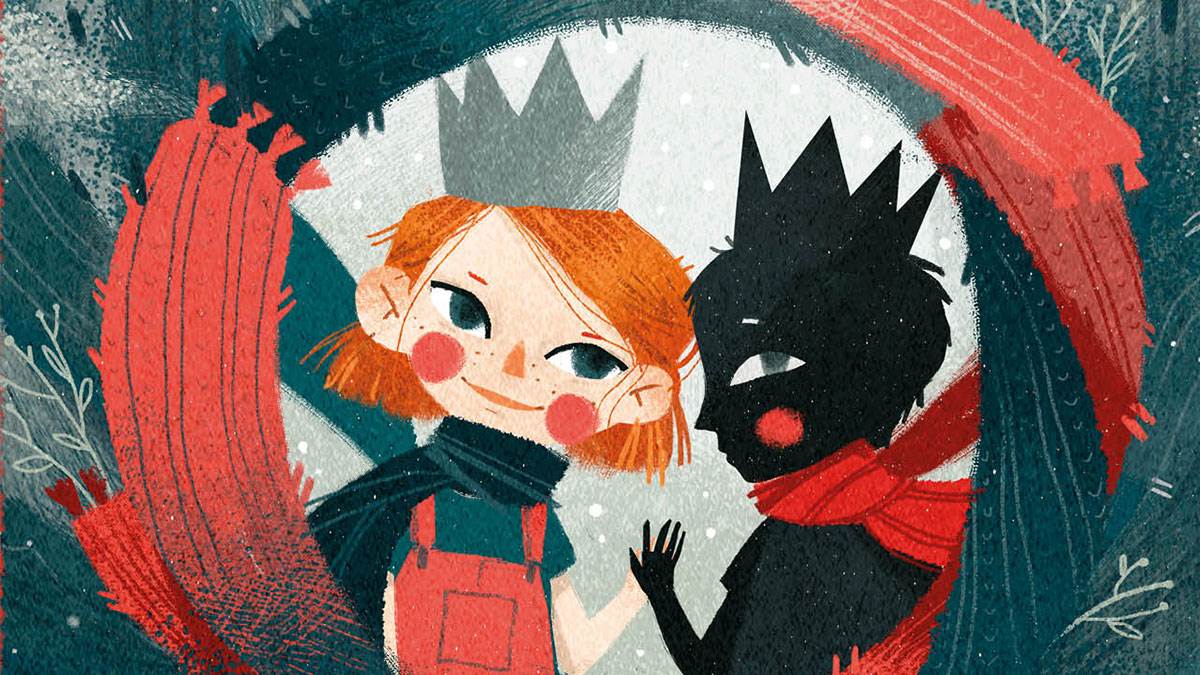 Illustration from the front cover of Shadow
Illustration from the front cover of Shadow
Published by Lantana, 2019
Well, I had to start with my own book, didn’t I? In my debut picture book story, a young child moves into a new house. Ignored by Mum, she finds a shadow under the bed who she makes friends with and together they cause mischief. I wrote it to explore issues of loneliness and sadness within the very young. Anastasia’s illustrations perfectly compliment the book’s themes and atmosphere, and help to infuse a sense of fairy tale.
Read our book review of Shadow
2. Where the Wild Things Are by Maurice Sendak
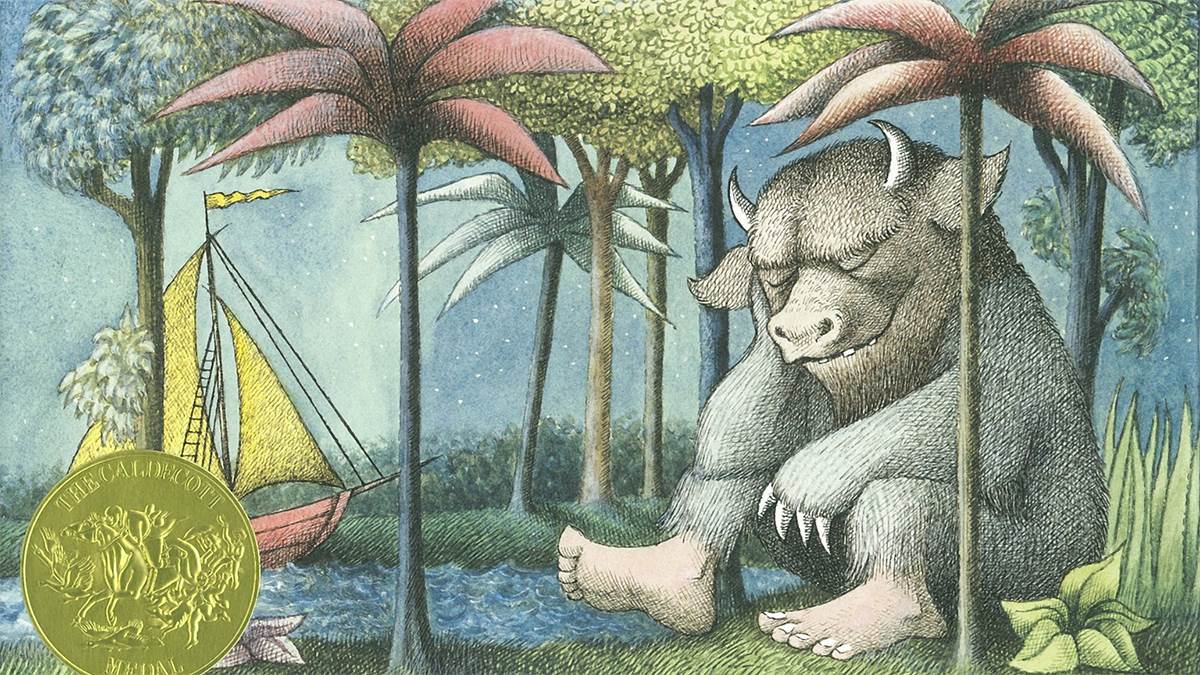
First published by Harper and Row, 1963
This book is ancient by picture book standards, but it’s still the quintessential text to explore rage and anger in the very young. Here, after an argument with Mum, Max runs away to have a wild rumpus with the Wild Things, before eventually taming them (and thus, his anger) and returning home. It’s a textbook psycho-analytic exploration of the journey of anger.
Read our book review of Where the Wild Things Are
3. Black Dog by Levi Pinfold
 Illustration from Black Dog
Illustration from Black Dog
Black Dog by Levi Pinfold
Templar Publishing, 2011
This is a powerful book for exploring and confronting your fears. Here, only the smallest member of the family is able to face the huge black dog outside. I love Pinfold’s work. He manages to create a book both reassuring and fun for the very young, while also deep and provocative for the older ages.
Read our book review of Black Dog
4. The Arrival by Shaun Tan
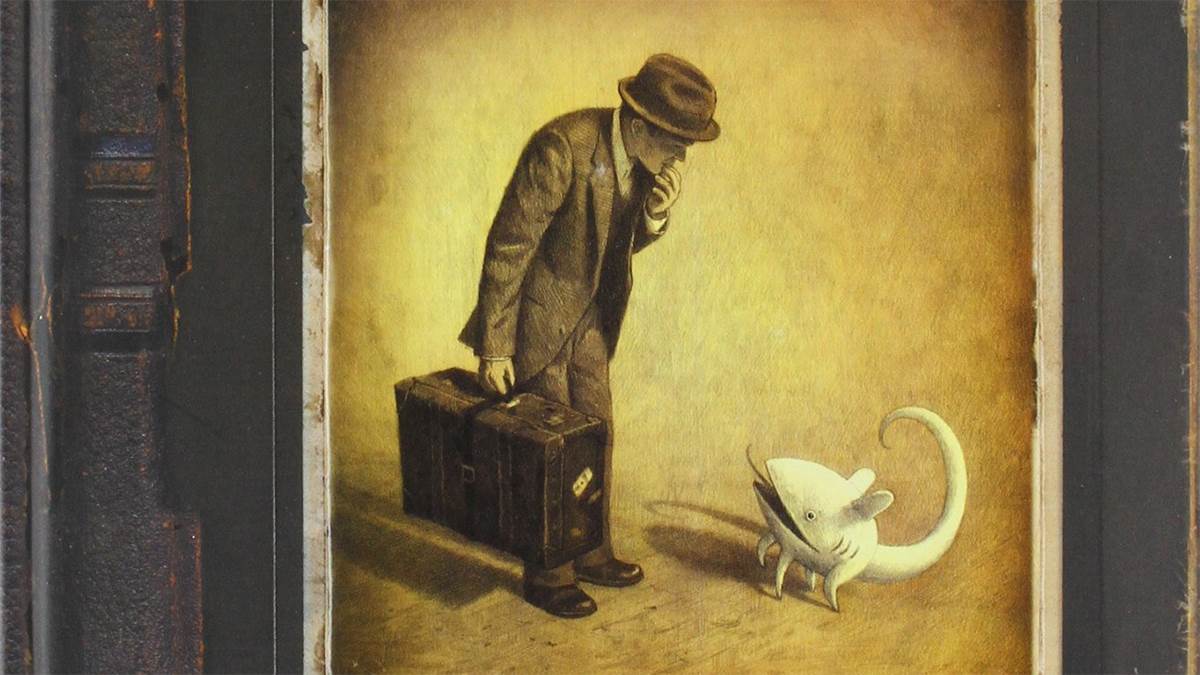 Illustration from The Arrival
Illustration from The Arrival
Hodder, 2006
Everything Shaun Tan makes speaks to an exploration of empathy and mental wellbeing. The Arrival is a wordless graphic novel about an immigrant arriving in a new country. When I grew up in Australia, there was constant discussion about refugees and immigration. This book really spoke to me and helped me to explore and empathise with this refugee experience.
Read our book review of The Arrival
How to read a wordless picture book with your child
5. They Didn’t Teach This in Worm School! by Simone Lia
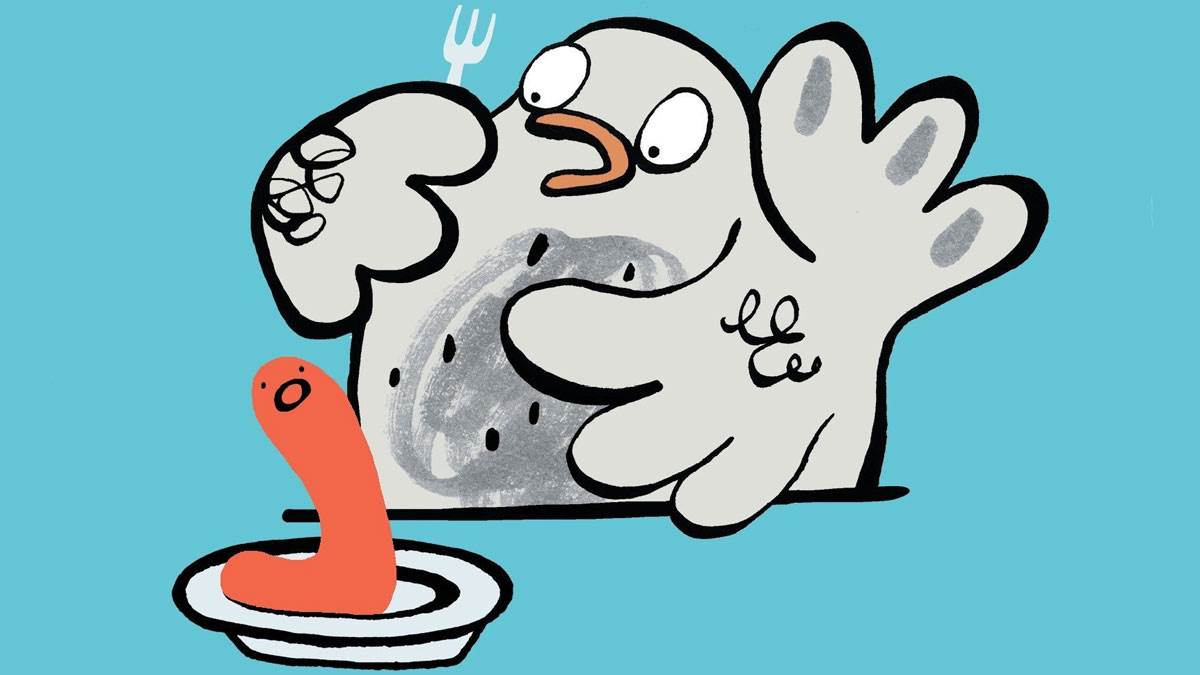 Illustration from the front cover of They Didn’t Teach This in Worm School
Illustration from the front cover of They Didn’t Teach This in Worm School
Walker Books, 2017
This tale about Marcus the worm making friends with Laurence the pigeon made me laugh out loud, over and over. Here, Marcus moves from being Laurence’s dinner plans to being his best friend. You can’t get a more empathetic journey than that!
Read our book review of They Didn't Teach This in Worm School!
6. The Eleventh Trade by Alyssa Hollingsworth
 Illustration from the front cover of The Eleventh Trade
Illustration from the front cover of The Eleventh Trade
Piccadilly Press, 2018
We’re in traditional middle grade territory here, with Hollingsworth weaving a nuanced and beautifully written story about Sami, an Afghan refugee who sets out to get his grandfather’s "rebab" (an Afghan instrument) back for him through a series of trades. It’s compassionately told, with expert research done by Hollingsworth, who volunteers with Afghan refugees.
7. I Am Thunder by Muhammad Khan
 Illustration from the front cover of I am Thunder
Illustration from the front cover of I am Thunder
Macmillan, 2018
This is a powerfully told story that encourages empathy and understanding. Inspired by a real event in 2015, when three London schoolgirls fled to Syria to join Islamic State, Khan tells the story of Muzna, a Muslim teenager, who is tempted by the path of radicalisation. This is an important, empowering novel that we all should be reading right now.
8. Snowflake, AZ by Marcus Sedgwick
 Cooper the dog, photographed by Marcus Sedgwick while researching Snowflake, AZ
Cooper the dog, photographed by Marcus Sedgwick while researching Snowflake, AZ
Zephyr, 2019
Sedgwick’s books never disappoint, often speaking directly to issues of mental wellbeing. In Snowflake, AZ, Sedgwick also takes on issues of physical wellbeing in his exploration of a community who are suffering with sickness from the chemicals and technologies of modern life. This book encourages empathy towards a community too-often mocked in modern society; those living with chronic illnesses often dismissed as only "in the mind".
Why Marcus Sedgwick is writing about illnesses we need to understand better






Add a comment